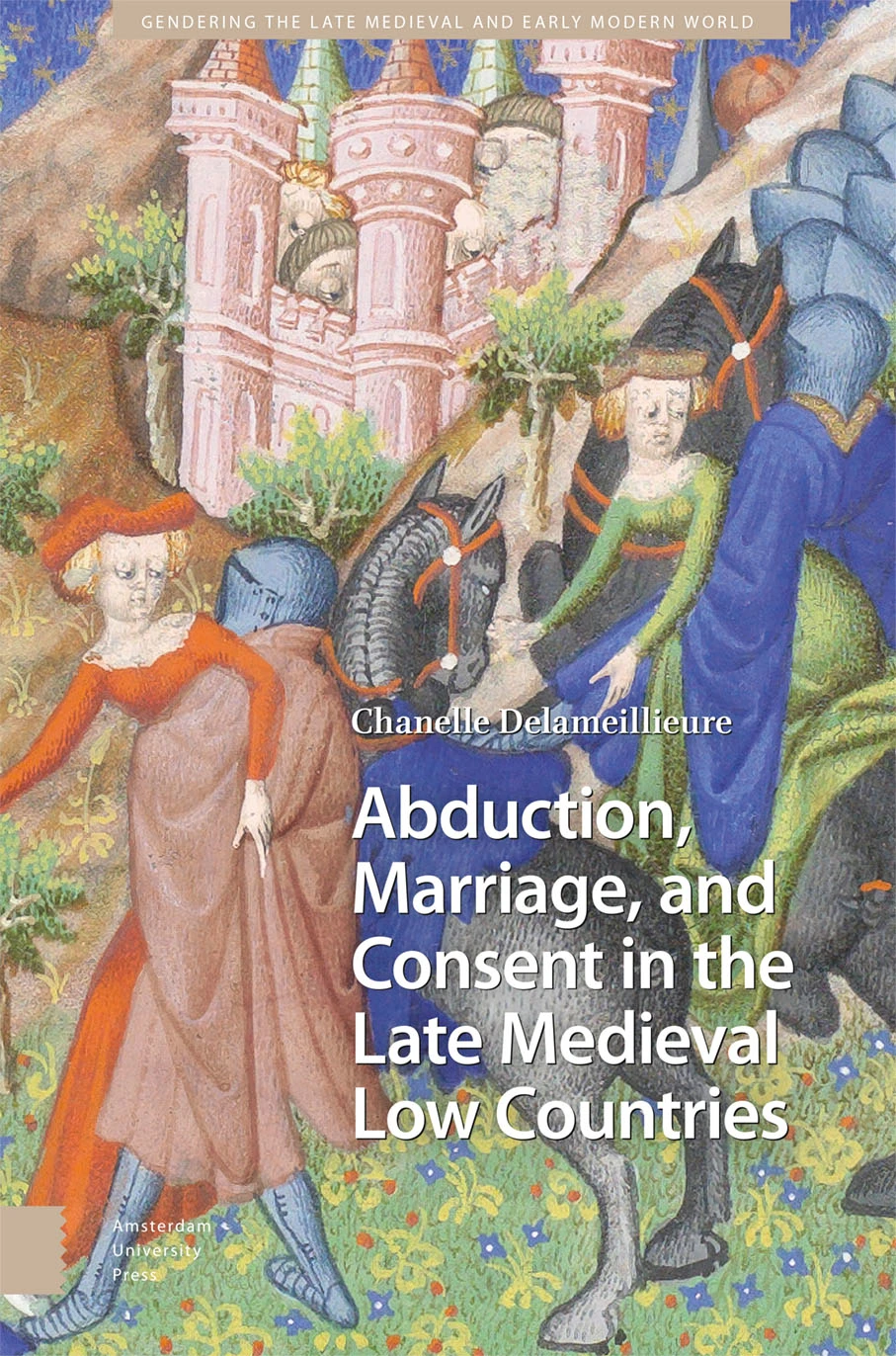(Image source: Amsterdam University Press)
ABOUT THE BOOK
The Middle Dutch term schaec referred to abduction with marital intent. This book explores this phenomenon to understand wider attitudes towards marriage-making in the fifteenth-century Low Countries. Whilst exchanging words of consent was all that was required legally, making marriage was a social process that evoked public concern and familial scrutiny. Abductions embodied contrasting evaluations of what mattered when selecting a spouse and resulted in polarized trials in which narratives on consent, coercion, and family strategy coincided and competed. Abduction, Marriage, and Consent draws from a wide range of legal records to assess how men, women, families, and authorities used, navigated, and dealt with abductions during this period. It contributes to debates on consent, family involvement, and women’s access to justice and demonstrates that abduction should be approached as a comprehensive social phenomenon, one that is crucial in the history of marriage and women’s social and legal status.
ABOUT THE AUTHOR
Chanelle Delameillieure researches late medieval gender and family history with a focus on marriage, sexuality and the social history of the law. She is a tenure track professor of medieval history at KU Leuven.
TABLE OF CONTENTS
Introduction
I. Perks and Perils of Being an Heiress
II. Abduction’s Who, How, and Why?
III. Consent in and out of the Courtroom
IV. What Authorities Did to Help
Conclusion
More information can be found here.


No comments:
Post a Comment
Note: Only a member of this blog may post a comment.